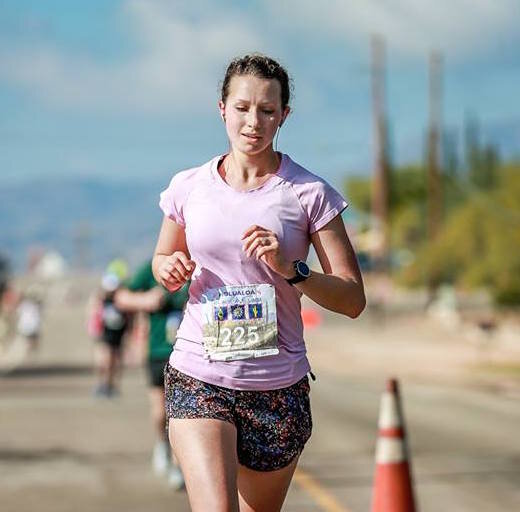No Pain No Gain? Orrrr….
Our society seems to have a preoccupation with suffering.
It’s an old story of “suffer to survive” or perhaps, even “suffer to thrive” that has been passed down from our ancestors.
On the surface, we all love to feel good.
But under the surface, many of us hold a subconscious belief that the ACTION towards are goal is only sufficient when it is marked by pain.
The result is we live our lives trying to work our body and minds as hard as possible, or feel guilty for not doing so.
Take me, in my early and mid 30s, desperate to prove I was“enough”.
Working out so hard it hurt meant I was getting strong.
Uncomfortable restriction and portion control was necessary to maintain a healthy weight.
Working to the grindstone was required in order to check all the boxes towards “success”.
Because hey, no pain no gain.
But is this actually true?
Does getting healthy, fit, and reaching your goals have to hurt?
Research is saying no. That it is actually the opposite. Evidence is mounting that this paradigm of excessive hard work, grinning and bearing, restricting, is actually leading athletes to burnout (1) , and the masses of individuals to chronic disease (2).
Cause here’s the thing - your body has a language when things are going right. It’s called feeling good.
However, embodying this wisdom takes a mental shift.
Sometimes it starts with realizing the damage the current paradigm has caused, as was the case in one of my clients. An athlete who had been experiencing burnout, she recently said
“I don’t feel accomplished on a run unless I feel like shit”.
Another client muttered this gold mine of wisdom as she was becoming more habituated in the new paradigm, saying
“I realize a treat isn’t a treat unless it makes me feel good” .
Both women are moving out of what they “should” be doing…and into action based on the wisdom of their own bodies.
What a proud coach am I to watch them actually grow not only more authentic, but STRONGER and more VIBRANT because of it.
These women are trailblazers, leaders who are spearheading a very important and necessary societal shift from “no pain no gain” consciousness, to one based in deep connection and respect for their unique body.
It is this shift, on an individual level, that is needed if we are to achieve this same deep connection and respect in our relationships, and with the Earth itself.
Yes I think this is this big.
And it’s backed by science.
Numerous peer-reviewed papers showing mental stress as a root cause of chronic disease (2,3,4,5).
Research showing overtraining (marked by an excessive time over what’s called the Maximum Aerobic Functional HeartRate) leads to inflammation, burnout, and weight gain primarily in and area I call “the stress belly” (6).
Research showing that “calories in calories out” adage to weight loss is not nearly the whole story, and that the QUALITY of calories is key for athletic performance, weight loss, and chronic disease prevention (7).
The efficacy of regular mind-body practices for digestive issues, headaches, and even heart disease and cancer (8). Practices marked by a simple a pause, whereby we listen to the body , and allow for stress release, emotional processing, and the healing signal to occur.
Counterintuitive as is may seem, the switch to leaning into what feels good can be challenging. Addiction to stress hormones can make it hard to sink into the pause and deeply listen. Instead we grab for the “quick fix” – food, phones, drama, internet, drugs – which distract us from our deeper need and thus from the TRUE feel good medicine our body seeks.
Challenge, as a necessary ingredient to the switch I am advocating, is different from pain. Challenge moves us out of our comfort zone and into our growth zone. This is the sphere where you discover the greatest expression of your health and soul gifts.
In a nutshell, my message to you is this:
Getting healthy does not have to hurt. It does not have to be hard.
As a matter of fact, leaning into suffering (i.e. overtraining, excessive portion control and chronic “overdoing”) more often steers you AWAY from health.
By ignoring our body’s pain signals, we experience more digestive distress and hormone imbalance, and lead ourselves to chronic disease.
If we are to embody maximum health, as individuals, a society, and an Earth community, we need to shift our subconscious from outdated “shoulds” towards the innate wisdom of our own body.
It starts by learning to listen deeply to your body and psyche and doing what feels good…without falling into the allure of addition that is actually a distraction from that deeper listening.
This means feel good nutrition, feel good exercise, and inner journey’s that may start out challenging and sticky but open into the full lovely expression of your soul’s capacity for pleasure.
Done right, your journey to maximum health is a delicious discovery and unfolding of keener, deeper, and more pleasurable sensations in the body-mind system.
Health feels good.
And, the true path to health feels real good too.
So let’s brainstorm a new axiom. Here’s mine :
“Challenge yourself to feel good”.
Got a better one that may be more catchy? I’d love to hear it!
Warmly,
Adrienne
P.S. Unsure how to start? Let’s get you on the track of your own juicy, feel good journey to health and full expression.
I have some limited space for hour-long coaching sessions that are ABSOLUTELY FREE for newbies. No strings attached. Give yourself this gift by clicking the button below, which will connect to my direct email.
Feeling good in my happy place on the river.
References
Smith LL. (2000). Cytokine hypothesis of overtraining: a physiological adaptation to excessive stress? Med Sci Sports 32(2):317-31.
Mariotti A. (2015). The effects of chronic stress on health: new insights into the molecular mechanisms of brain-body communication. Future science OA, 1(3), FSO23.
Glaser R, Kiecolt-Glaser JK. (2005) Stress-induced immune dysfunction: implications for health. Nat. Rev. Immunol. ;5(3):243–251.
Justice N. J. (2018). The relationship between stress and Alzheimer's disease. Neurobiology of stress, 8, 127–133.
Salleh M. R. (2008). Life event, stress and illness. The Malaysian journal of medical sciences : MJMS, 15(4), 9–18.
Meffetone P and Laursen P. (2020). Maximum Aerobic Function: Clinical Relevance, Physiological Unerpinnings, and Practcial Application. Frontiers in Physiology Exercise Physiology.
Sadie B. Barr and Jonathan C. Wright (2010) Postprandial Energy Expenditure in Whole-Food and Processed-Food Meals: Implications for Daily Energy Expenditure. Food & Nutrition Research, Vol. 54.
Astin JA, Shapiro SL, Eisenberg DM, Forys KL. (2003) Mind-body medicine: state of the science, implications for practice. J Am Board Fam Pract. (2):131-47.


